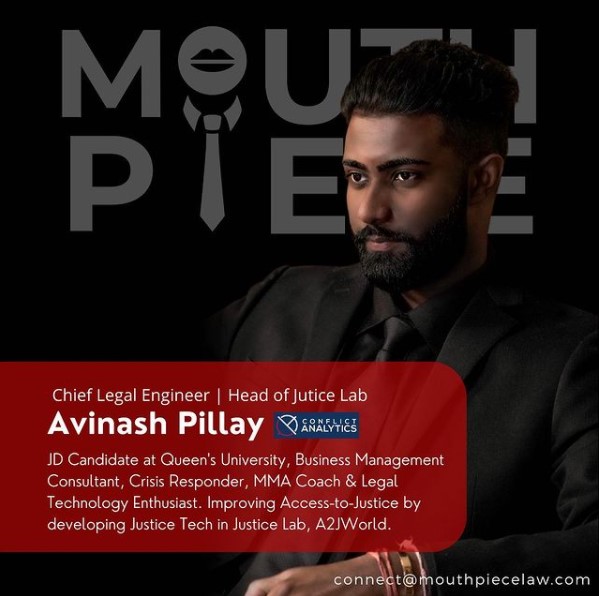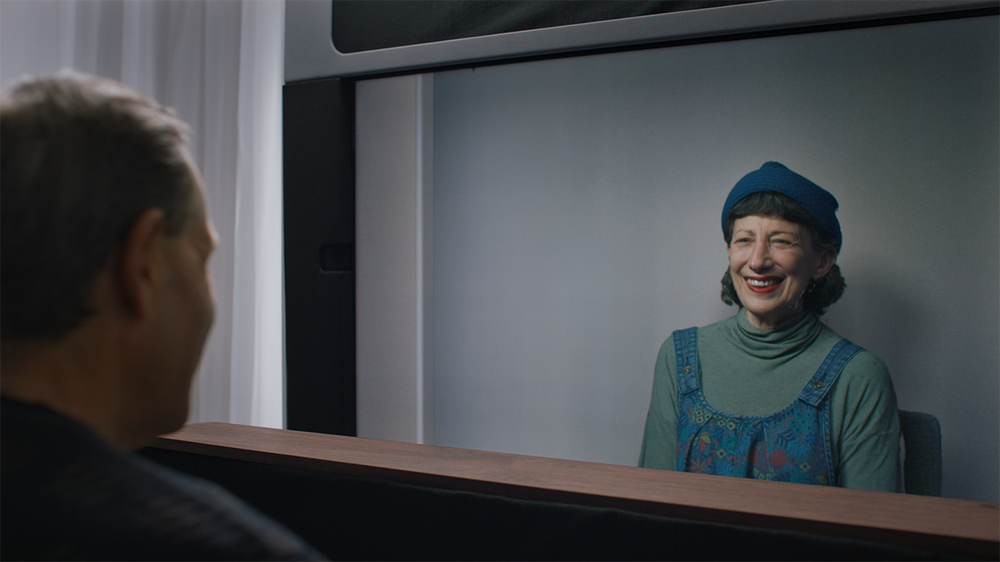Fringe Legal #0046 - Curiosity → Obsession → Results 🔥
May 26, 2021 6:37 am
Hi
If this is the first time getting the newsletter - welcome! You can expect to find snackable bites on innovation, transformation, and knowledge management each week.
If you have any feedback, topic suggestions, or want to say 👋 'hi' - you can find me on LinkedIn.
🙏 Special thanks to Ryan Short for sharing Fringe Legal - it means a lot.
How a group of students are disrupting A2J
This week on the podcast, I spoke with Avinash Pillay - COO and Chief Legal Engineer at Mouthpiece Law.
Avi and his colleagues are law students, determined to challenge the status quo and bring about cost-effect solutions to access legal services for the general public:
"This is going to be a somewhat uphill battle due to how grounded the norms are; the status quo in the legal profession is so hard to fight against.
This is actually the first time in over a hundred years that something like this is possible. It has never once been possible before, and we find ourselves at the forefront of a potential magnificent change in the legal community, but it needs to be done with care, and it needs to be done with a village behind you."
source: instagram
Here are my top three takeaways
You can disrupt without being disruptive. Go to the very foundation of your assumptions. Most problems are quite complex but can be broken down into simpler forms, isolating the needs of each party involved. For Mouthpiece, it meant driving towards an outcome where both clients and practitioners are happy. They found that they could achieve this by leveraging lateral partnerships with legal tech providers (amongst other things). Practitioners and firms reduce the overhead costs, which allow them to reduce the cost of their service, and the public gets access to more affordable legal advice.
Leverage constraints. I've written about this before, but constraints can serve as a powerful tool. Where can you focus your time that will return disproportionately greater returns?
"We knew that we could try to address legal aid, but on the other side of things, we know that there are many more lawyers that are willing to actually help out if there's a little bit of money to be made. And so there are two angles to think about. One is that we can go fully not-for-profit and maybe address 20% of the market, or we can go for-profit and try to address the entire market.
Then, of course, we risk having to sell equity to venture capitalists that might not care very much about legal aid or student professional development. So this was the conundrum we faced, and we turned to overhead costs. We started to research, and this was very much a skill we developed at the Conflict Analytics Lab, which is how do you take a very large and difficult to solve problem and break it down into small parts that can be addressed individually."
Results take time; keep showing up. Getting started and developing a habit of shipping something every week is tough. Many people have great ideas, maybe even better ideas than you have today, but only a small percentage are willing to put in the work and continue doing the work.
"The best advice I can give... is in that situation just be malleable and an active listener - pay attention to what other people are doing. Our impetus for actually doing this ourselves was realizing that nobody else was willing.
The best thing that we did was talked to other students and quickly realized that every law student would be interested in something like this, but not every law student would be willing to put in all of the hours into the business development, and into making this actual thing.
Once we realized that we understood that somebody has to do it, otherwise legal aid will stay as it is indefinitely. And so we just at one point said, you know what, screw it - let's just make this happen."
Mouthpiece Law is looking to secure eligibility for the Regulatory Sandbox for Innovative Technological Legal Services, run by the Law Society of Ontario, Canada. Whether you're in Canada 🍁 or elsewhere, please help spread the word about what they are doing.
Listen to the full episode here.
Snacks
source: Google
💡 Google's Project Starline, taking video calls to the next level. I don't know what the world will be like in the future, but I'm confident that video calls aren't going away anytime soon. One of the things that are lacking with video calls is the depth you feel in person.
Google is looking to solve that through its research into light-field technology. At its I/O conference last week (18th May) it shared Project Starline. The technology is wild, especially the level of compression the team has been achieved. At the moment it's basically a big booth (which could work for office settings), it'll be interesting to see where this goes.
🃏 Practice your outs. I came across the book 'Outs: Precautions and Challenges' by Charles Hopkins. It is intended for magicians, basically informing them that they should practice their outs, i.e., what do you do if the trick goes wrong, or not according to plan? Have a plan A, B, C that leads the act to its conclusion. Having a narrative is important as folks want an ending. This is good advice for pitches, sales, marketing, training, and engaging meetings/conversations - lead the story to a conclusion.
❓ A question I've been thinking about asking future guests. Looking back at everything you've done so far, what was: the most interesting, hardest, and most enjoyable?
Until next time. Be well.
Ab
P..S. want to share feedback or suggestions? Answer this two-question survey, you can speak or type your answers.


